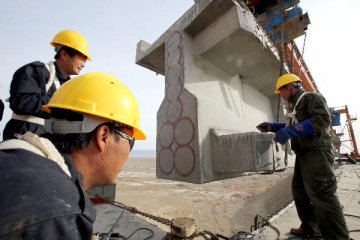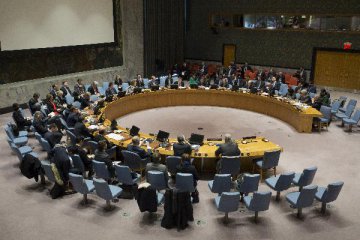
The Asian Infrastructure Investment Bank (AIIB) announced Thursday its board of governors had approved 13 applications to join the bank.
This is the first time the bank has welcomed new prospective members since its inception in 2015 and brings the bank's total membership to 70.
The approved applicants are five regional prospective members -- Afghanistan, Armenia, Fiji, Hong Kong of China and Timor Leste -- and eight non-regional: Belgium, Canada, Ethiopia, Hungary, Ireland, Peru, the Republic of Sudan and Venezuela.
"The interest in joining AIIB from around the world affirms the progress we have made in establishing the bank as an international institution," said Jin Liqun, AIIB president.
"I am very proud that AIIB now has members from almost every continent, and we anticipate further applications this year," he said.
The 13 prospective members will officially join the bank once they complete the required domestic processes and deposit their first capital. The shares allocated to them come from an existing pool of unallocated shares.
"These prospective members are at different stages of economic development, a testimony to the inclusiveness of the bank, and contribute to inclusive global development," said Chen Xulong, a researcher with China Institute of International Studies.
The new members indicate the strong endorsement by the international community for the bank and its internal governance, said Yao Zhizhong, deputy director of the Institute of World Economics and Politics at the Chinese Academy of Social Sciences (CASS).
The view was echoed by Chen, who believes the mission, governance and efficacy of the AIIB in the initial stage have won worldwide recognition.
Headquartered in Beijing, AIIB's mission is to improve economic and social development in Asia by investing in high quality, financially viable and environmentally friendly infrastructure projects.
Globalization has suffered setbacks in Europe and the United States. The world badly needs new driving forces for globalization and regional integration, said Wei Ling, director of Institute of Asian Studies at China Foreign Affairs University.
"The AIIB can not only improve connectivity, but can speed up regional integration," Wei added.
The AIIB will focus on three major tasks this year: sustainable infrastructure, cross-country connectivity and mobilization of private capital.
However, Zhang cautioned that the bank must give due attention to the sustainability and profitability of its projects while meeting the infrastructure needs of developing countries.
The bank has already approved loans for projects in a list of countries including Oman and Azerbaijan.
























Latest comments